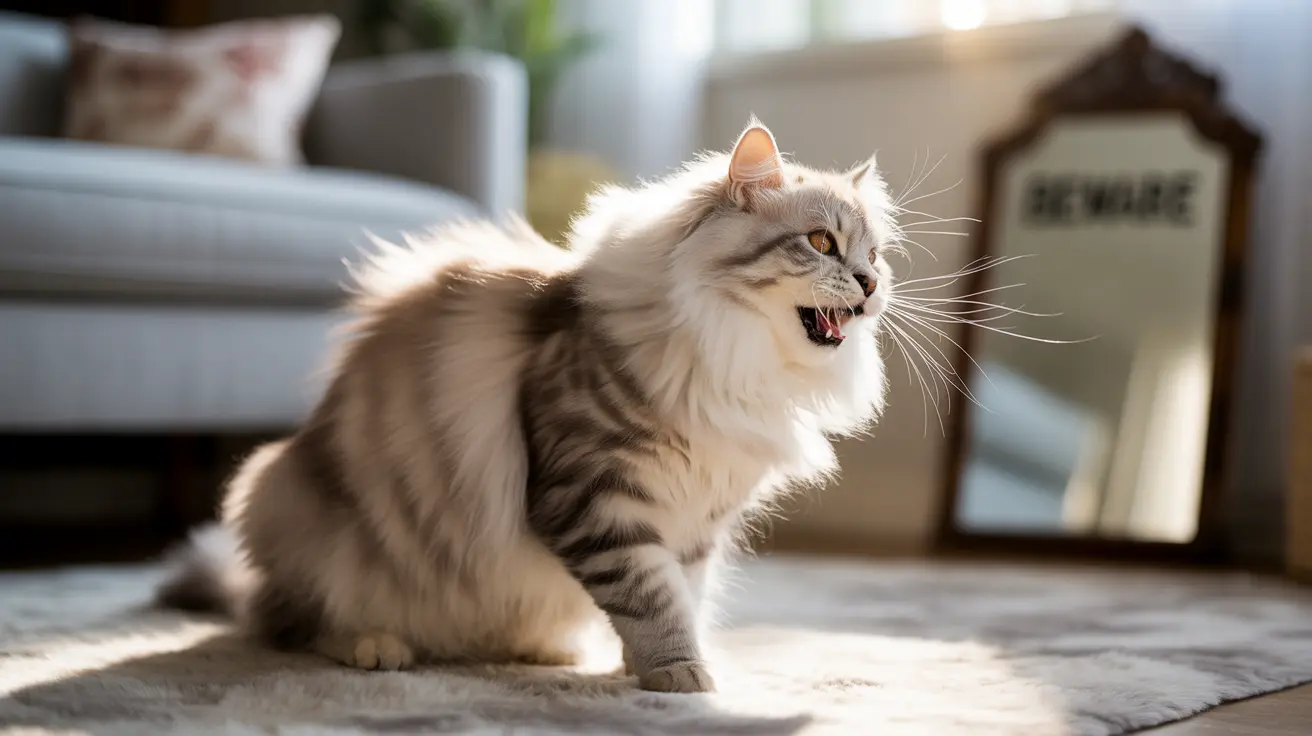When your feline friend lets out a sudden hiss, it's more than just a startling sound - it's a crucial form of communication that deserves our attention and understanding. Cat hissing serves as a natural defensive mechanism, helping cats express everything from mild discomfort to serious distress. Understanding why cats hiss and how to respond appropriately is essential for maintaining a harmonious relationship with your pet.
As responsible pet owners, recognizing the various triggers and meanings behind cat hissing can help us create a more comfortable environment for our feline companions while ensuring their physical and emotional well-being. Let's explore the complex world of this distinctive feline vocalization and learn how to better support our cats when they feel the need to express themselves this way.
Common Reasons Why Cats Hiss
Cats primarily hiss when they feel threatened, afraid, or uncomfortable. This defensive vocalization serves as a warning signal, essentially telling others to back off before more aggressive behavior becomes necessary. Here are several key situations that commonly trigger hissing:
Fear and Anxiety
When cats encounter unfamiliar situations, people, or animals, they may hiss as a protective response. This is especially common during moves to new homes or when meeting new family members.
Physical Discomfort
Pain or illness can cause cats to hiss when touched in sensitive areas. This might indicate underlying health issues such as arthritis, dental problems, or injuries that require veterinary attention.
Territorial Defense
Cats are naturally territorial creatures and may hiss to protect their space from perceived intruders, whether they're other pets or unfamiliar humans.
Understanding Your Cat's Body Language
Hissing rarely occurs in isolation - it's typically accompanied by other telling body language signals that help communicate your cat's emotional state:
- Flattened ears against the head
- Dilated pupils
- Arched back with puffed-up fur
- Tail positioning (either straight up or low and puffed)
- Whiskers pointed forward
- Exposed teeth and tongue
How to Respond to Cat Hissing
When your cat hisses, it's crucial to respond appropriately to prevent escalation and help them feel secure:
Do:
- Give your cat plenty of space
- Remain calm and speak softly
- Identify and remove potential stressors
- Provide a safe retreat area
Don't:
- Force interaction
- Punish the behavior
- Make sudden movements
- Ignore signs of illness or injury
Preventing Hissing Episodes
While some hissing is normal, you can take steps to minimize stressful situations that trigger this behavior:
- Create multiple safe spaces throughout your home
- Introduce new pets gradually
- Maintain consistent routines
- Schedule regular veterinary check-ups
- Use calming aids when necessary (e.g., pheromone diffusers)
Frequently Asked Questions
Why do cats hiss at people, and how can I stop it?
Cats hiss at people when they feel threatened or uncomfortable. To stop this behavior, respect their space, avoid forced interactions, and work on building trust through positive associations and gentle approaches.
What are the common reasons behind a cat's hissing behavior?
Common reasons include fear, pain, territorial defense, overstimulation, and protecting young. Understanding these triggers helps address the root cause of the behavior.
How should I handle my cat if it's hissing at me?
Give your cat space, avoid direct eye contact, and speak softly. Wait until they calm down before attempting any interaction, and always respect their boundaries.
Can cats hiss due to pain or illness, and what signs should I look for?
Yes, cats often hiss when in pain. Watch for additional signs like changes in appetite, mobility issues, excessive grooming, or hiding behavior. Consult a veterinarian if you notice these symptoms.
How can I reduce stress and hissing in a multi-cat household?
Provide multiple resources (litter boxes, feeding stations, resting areas), introduce cats gradually, and ensure each cat has their own territory. Use vertical space and create escape routes to minimize confrontations.
Understanding and respecting your cat's hissing behavior is crucial for maintaining a positive relationship with your pet. By recognizing the signs, responding appropriately, and addressing underlying causes, you can help create a more comfortable environment for your feline friend while strengthening your bond.






